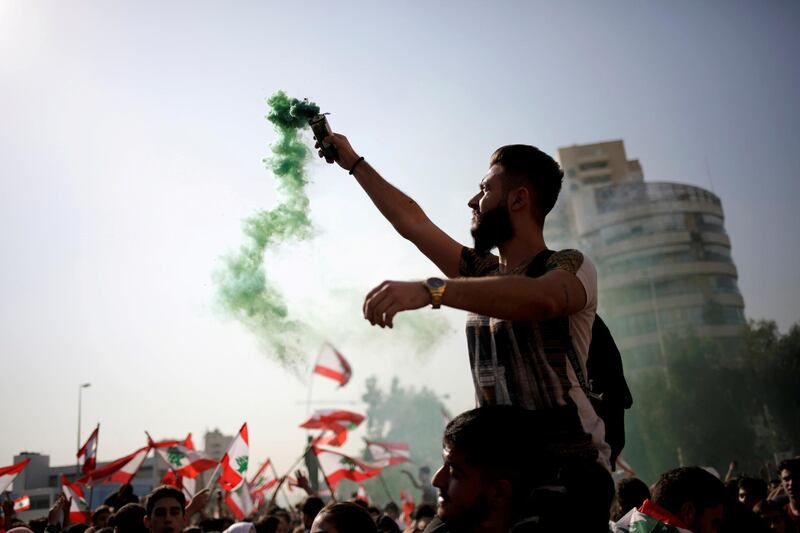Moody's Investor Service downgraded Lebanon's top three banks by assets further into junk status, after cutting the country's rating last week, citing the weak creditworthiness of the government as mass protests show no signs of abating.
The ratings agency downgraded the local-currency deposit ratings of Bank Audi, Blom Bank and Byblos Bank to 'Caa2' from 'Caa1', Moody's said on Thursday. It downgraded their foreign-currency deposit ratings to 'Caa3' from 'Caa1'.
"The Lebanese government's weakening creditworthiness is adversely affecting the three banks' own creditworthiness given their large exposure to the Lebanese sovereign, which is their main source of risk," Moody's said in a statement. "In addition, the three banks continue to be exposed to the challenging
Lebanese operating environment."
The action follows Moody's downgrading of Lebanon's credit rating further into junk territory last week on the likelihood of debt rescheduling or other measures that may be defined as default. Lebanon, one of the world's most indebted nations, is in dire financial condition as anti-government mass protests grip the nation for more than three weeks. Demonstrators blame Beirut’s political elite for widespread corruption and nepotism, which they say contributed to the country accruing $86 billion (Dh315bn) of public debt or the equivalent to 150 per cent of gross domestic product debt.
The nationwide protests have led to the resignation of Prime Minister Saad Hariri and to banks shutting down to the public temporarily for security reasons.
The banks' ratings downgrade also reflects the strained systemic funding and liquidity conditions because of higher political uncertainty and a deterioration in the operating conditions for banks, Moody's said.
The three banks' ratings are under review for further downgrade, which will focus on a potential further deterioration in the government's credit quality and any further pressure on the banking system's liquidity.
The three banks overall exposure to the Lebanese government is the equivalent to seven to nine times their Tier 1 capital and more than half of their assets, Moody's said, citing their 2018 financial statements. Such exposure links the banks' creditworthiness to that of the heavily-indebted Lebanese government.
Uncertainty following weeks of political unrest is increasing the risk of deposit outflows from Lebanon - or conversions into dollars - and a period of limited new deposit inflows along with higher rates that banks need to pay for deposit, Moody's said.
Political instability could also lead to delays in badly-needed government reforms aimed at restoring confidence and stimulating economic growth.
Lebanon's economic growth is flat since the beginning of the year, growing between 0 and 0.5 per cent, said Blominvest Bank general manager Fadi Osseiran.
Lebanon’s economy is projected to slow to 0.2 per cent this year, from about 0.3 per cent in 2018, according to International Monetary Fund estimates made before the resignation of Mr Hariri.
In October Lebanon recorded its slowest decline in business activity in three years, although its economy continues to shrink and may feel the brunt of social unrest that has gripped the country for the past three weeks in forthcoming months, according to the latest data released by IHS Markit and Blom Bank.








